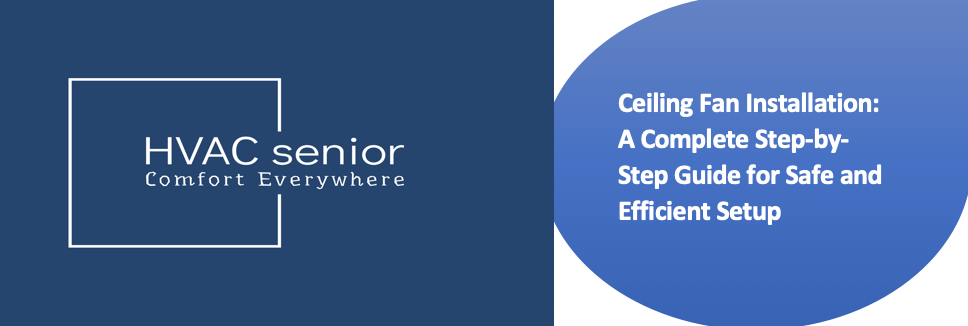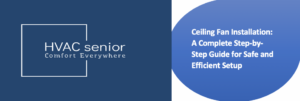Common Rheem Air Conditioner Problems and Solutions.
During the scorching summer, the three words “Rheem Air Conditioner Problems” can fill homeowners with dread.
Your Rheem air conditioner is your refuge from the heat when it becomes too hot. HVAC (Heating, Ventilation, and Air Conditioning) systems, which are renowned for their dependability and efficiency, have made Rheem a household name.
Rheem Air Conditioner Problems, however, can strike even the most trustworthy systems, leaving you stranded.
This post will examine Rheem Air Conditioner Problems in-depth, identifying typical problems and providing workable solutions to keep your cooling system in top condition.
The peace in your house can be disturbed by Rheem Air Conditioner Problems. These air conditioners, lauded for their sturdy construction and cutting-edge technology, occasionally experience problems.
Understanding the potential Rheem Air Conditioner Problems is essential for making well-informed decisions and preserving the longevity of your cooling system, regardless of whether you are an experienced Rheem customer or considering an investment.
Inadequate cooling is one of the many issues with Rheem air conditioners and is a regular foe. Imagine a sweltering summer day when you eagerly await the air conditioner’s soothing embrace, only to be greeted by warm air.
It’s an annoying situation. Inadequate cooling may be caused by clogged filters, refrigerant leaks, or a broken compressor, among other things.
Finding the underlying reason is essential to improving system performance and effectively addressing Rheem Air Conditioner Problems.
Related Article>>>>furnace blowing cold air.
Another aspect of Rheem Air Conditioner Problems is strange noises coming from your unit. While air conditioners do make some noise, loud or unusual noises like slamming, hissing, or clanging should raise red flags.
These noises frequently indicate deeper problems with the fan motor, compressor, or loose parts. Ignoring these audible alerts may make Rheem Air Conditioner Problems worse and necessitate expensive repairs.
We’ll go into these noise problems in more detail in the parts that follow, and we’ll provide you advice on how to properly deal with them.
Furthermore, Rheem Air Conditioner Problems are plagued by the problem of continuous cycling on and off.
This interferes with your comfort and reduces energy efficiency. The phenomenon known as “short-cycling” can be caused by a number of things, including an oversized unit, problems with the thermostat, or airflow limitations.
Finding the causes of short-cycling is essential for preventing unnecessary system damage.
Additionally, our guide will stress how crucial routine maintenance is for preventing Rheem Air Conditioner Problems.
Failure to address this important issue could pave the way for later, more serious issues. Routine maintenance maximizes the effectiveness of your system and protects it from unanticipated Rheem Air Conditioner Problems.
In this thorough tutorial, we equip you with the information and useful advice needed to diagnose and fix Rheem Air Conditioner Problems.
Understanding the workings of your cooling system is your key to avoiding Rheem Air Conditioner Problems and guaranteeing a pleasant, comfortable home atmosphere all season long, whether you’re an experienced DIY enthusiast or prefer to hire a professional specialist.
Don’t let the summer heat win; arm yourself with the knowledge to handle Rheem Air Conditioner Problems and enjoy continuous comfort.
Also read>>>>Goodman Air Conditioner Problems.
Why is my Rheem Air Conditioner Not Cooling?
Although Rheem air conditioners are renowned for their dependability and effectiveness, even the most reliable systems sometimes experience problems.
When a Rheem air conditioner isn’t cooling properly, it’s one of the most frequent issues homeowners deal with.
Understanding the causes of this cooling enigma is the first step toward regaining your comfort. There may be a number of contributing factors.
Possible Reasons
- Clogged Air Filters: Over time, air filters in your Rheem air conditioner can become clogged with dust and debris. When this happens, airflow is restricted, causing reduced cooling performance. Regularly changing or cleaning the filters can often resolve this issue.
- Refrigerant Issues: Low refrigerant levels or refrigerant leaks can impede your air conditioner’s ability to cool effectively. This problem requires the attention of a qualified technician who can locate and fix the leaks and recharge the refrigerant.
- Thermostat Problems: A malfunctioning thermostat can lead to inaccurate temperature readings and erratic cooling behavior. Ensure your thermostat is set to the desired temperature and is functioning correctly. If needed, consider replacing it.
- Dirty Condenser Coils: Over time, the condenser coils on the outdoor unit can accumulate dirt and debris, reducing the system’s efficiency. Regularly cleaning these coils can improve cooling performance.
- Blocked Condenser Unit: If the outdoor condenser unit is obstructed by vegetation or debris, it can hinder heat exchange and cooling. Clear any obstructions to ensure proper airflow.
- Faulty Compressor: The compressor is the heart of your air conditioning system, and if it’s not working correctly, cooling will suffer. Compressor issues often require professional diagnosis and repair.
- Incorrect Unit Size: An oversized or undersized air conditioner may not cool your space effectively. Ensure that the size of your Rheem air conditioner matches the cooling needs of your home.
Solutions:
- Regular Maintenance: Preventative maintenance is crucial. Keep air filters clean or replace them every few months. Schedule annual professional maintenance to check for refrigerant leaks, clean coils, and ensure all components are functioning optimally.
- Thermostat Check: Verify that your thermostat is set to the correct temperature and is functioning accurately. Consider upgrading to a programmable thermostat for better control and energy savings.
- Condenser Coil Cleaning: Clean the outdoor condenser coils at least once a year, especially before the cooling season begins. This simple task can significantly improve cooling efficiency.
- Condenser Unit Care: Keep the area around the outdoor condenser unit clear of debris, plants, and obstructions to maintain proper airflow.
- Professional Service: If you suspect refrigerant issues, a faulty compressor, or other complex problems, it’s best to call a qualified HVAC technician for a thorough inspection and repair.
Also read>>>>Common Problems with PTAC Units.
How Long Will a Rheem Air Conditioner Last?
For homes, purchasing a high-quality air conditioning system is a major decision. An established name in the HVAC sector, Rheem is known for making air conditioners that are reliable and effective.
However, Rheem air conditioners have a limited lifespan, much like all mechanical devices. What is the expected lifespan of a Rheem air conditioner?
Average Lifespan of a Rheem Air Conditioner
A Rheem air conditioner typically has a lifespan of 15 to 20 years. This estimate is based on a number of variables, including the model, consumption, upkeep, and environmental circumstances.
In comparison to less reputable brands, Rheem’s dedication to quality and cutting-edge technology frequently results in longer lifespans for its units.
Factors That Impact Lifespan
- Regular Maintenance: Perhaps the most crucial factor in extending the lifespan of your Rheem air conditioner is routine maintenance. Regularly cleaning or replacing air filters, checking and cleaning the condenser coils, and scheduling annual professional inspections can significantly increase its longevity.
- Usage Patterns: How often and for how long you run your air conditioner affects its lifespan. Systems that operate continuously during the hottest months may experience more wear and tear compared to those used sparingly.
- Climate: The local climate plays a significant role. In areas with extreme temperatures and high humidity, air conditioners tend to work harder and may have a shorter lifespan. On the other hand, in milder climates, they may last longer.
- Installation Quality: Proper installation by a qualified technician is critical. An incorrectly installed unit may not operate efficiently and could suffer from premature wear and tear.
- Model and Technology: The specific Rheem model you choose can impact its lifespan. Higher-end models with advanced technology and features may have a longer lifespan due to their superior components and construction.
- Repair and Maintenance History: Timely repairs and addressing issues promptly can help prevent small problems from escalating into major ones, potentially extending the life of your Rheem air conditioner.
Signs It’s Time for Replacement Rheem air conditioner.
While Rheem air conditioners are known for their durability, there comes a time when replacement is the most cost-effective choice. Some signs indicating it’s time for a new unit include:
- Frequent Breakdowns: If your air conditioner requires frequent repairs and the repair costs are mounting, it may be more economical to invest in a new, efficient unit.
- Reduced Efficiency: If your air conditioner no longer cools your home as effectively as it used to, it could be a sign that it’s nearing the end of its lifespan.
- Increased Energy Bills: Older units tend to be less energy-efficient. If you notice a significant increase in your energy bills, an upgrade to a more efficient model may be a wise investment.
- Age: If your Rheem air conditioner has reached or exceeded its expected lifespan and is showing signs of wear and tear, it’s a good time to start considering a replacement to avoid unexpected breakdowns.
Also read>>>>Goodman Furnace 3 Flashes.
Is Rheem a Good Air Conditioner Despite Common Rheem Air Conditioner Problems?
Brand reputation becomes a crucial consideration in your decision-making process when looking for an air conditioner for your home.
A reputable brand in the HVAC sector, Rheem, frequently ranks as a solid option for cooling systems.
Even yet, the question of whether Rheem is a good air conditioner still lingers, particularly in light of frequent Rheem Air Conditioner Problems.
Let’s examine what makes Rheem a well-liked and dependable brand among homeowners while addressing the occasionally occurring problems.
1. Reputation for Reliability, Despite Rheem Air Conditioner Problems
Rheem has cultivated a reputation for manufacturing air conditioners that are dependable and long-lasting.
Many homeowners have found Rheem units to perform admirably over extended periods, offering consistent and efficient cooling even in the most unforgiving climates.
However, it’s essential to acknowledge the existence of Rheem Air Conditioner Problems that can impact reliability. Understanding these issues equips homeowners to take proactive measures for better performance.
2. Energy Efficiency, Despite Rheem Air Conditioner Problems
Rheem’s product lineup includes air conditioner models known for their energy efficiency. Energy-efficient units not only reduce your environmental footprint but also lead to cost savings on energy bills.
Rheem’s commitment to incorporating advanced technologies into their products contributes to high Seasonal Energy Efficiency Ratios (SEER), despite occasional Rheem Air Conditioner Problems. These innovative units continue to be eco-friendly and cost-effective.
3. Quality Construction and Rheem Air Conditioner Problems
Rheem’s dedication to quality is evident in the construction of their air conditioners. These units are built with robust materials and undergo rigorous testing to ensure they can endure daily operation.
While this commitment to quality is commendable, it does not eliminate the possibility of Rheem Air Conditioner Problems, such as component failures or refrigerant leaks, which can affect overall performance.
4. Innovation and Technology Amid Rheem Air Conditioner Problems
Rheem maintains its competitive edge by investing in research and development to stay at the forefront of HVAC technology.
Their commitment to innovation results in air conditioners equipped with advanced features that enhance comfort and convenience.
Despite these technological advancements, homeowners may still encounter Rheem Air Conditioner Problems, necessitating timely solutions and technical support.
5. Warranty Coverage and Rheem Air Conditioner Problems
Rheem typically offers competitive warranty coverage for their air conditioners, offering homeowners a safety net against unexpected Rheem Air Conditioner Problems.
However, warranty terms can vary depending on the specific model and installation details, and homeowners must carefully review the warranty information for the unit they choose.
Due to its reputation for dependability, energy economy, high-quality construction, technical innovation, and warranty coverage,
Rheem is widely regarded as a reputable air conditioner brand. To properly deal with Rheem Air Conditioner Problems, one must first accept their existence and arm themselves with knowledge.
The best way to maximize performance and longevity, despite Rheem Air Conditioner Problems, is to choose the ideal Rheem model for your cooling requirements, ensure skilled installation, and commit to routine maintenance.
Also read>>>smallest portable air conditioner.
Why is my AC Running but Not Cooling?
It can be really unpleasant when your air conditioner is running nonstop on a hot day but doesn’t provide the desired cooling relief.
This is a frequent problem that many homes have, and it may be caused by a number of things, including Rheem Air Conditioner Problems.
Let’s look at some of the main causes of your AC running but not cooling, along with each problem’s solution.
Common Reasons for an AC Running but Not Cooling
- Dirty or Clogged Filters: One of the most frequent Rheem Air Conditioner Problems that can impede cooling is dirty or clogged filters. Over time, filters accumulate dust and debris, restricting airflow and reducing cooling efficiency.
- Refrigerant Issues: Refrigerant is essential for the cooling process. Low refrigerant levels, refrigerant leaks, or improper refrigerant charge can cause your AC to run without providing adequate cooling.
- Thermostat Problems: A malfunctioning thermostat can lead to inaccurate temperature readings, causing your AC to run when it’s not necessary or shutting off prematurely.
- Frozen Evaporator Coils: If the evaporator coils in your AC freeze due to issues like airflow restrictions or refrigerant problems, it can hinder the cooling process.
- Blocked Condenser Unit: The outdoor condenser unit needs proper airflow to release heat effectively. If it’s obstructed by debris, vegetation, or dirt, your AC will struggle to cool your home.
- Faulty Compressor: The compressor is the heart of your AC system, and if it’s not working correctly, your AC won’t be able to cool the air effectively.
Solutions to Address AC Running but Not Cooling
- Change or Clean Filters: Regularly inspect and clean or replace air filters to ensure unrestricted airflow. This is a simple but effective solution to many Rheem Air Conditioner Problems.
- Refrigerant Inspection and Recharge: If you suspect refrigerant issues, contact a qualified technician to inspect and recharge the refrigerant to the correct levels.
- Thermostat Calibration or Replacement: Calibrate or replace a malfunctioning thermostat to ensure accurate temperature readings, preventing unnecessary AC operation.
- Thaw Frozen Evaporator Coils: Turn off your AC and let the evaporator coils thaw. Address the root cause of freezing, such as airflow restrictions or refrigerant problems, before restarting.
- Clear Condenser Unit: Regularly clear any debris or obstructions around the outdoor condenser unit to ensure proper heat exchange.
- Compressor Check: If you suspect a faulty compressor, consult a professional technician for a thorough diagnosis and potential replacement.
Finding the Optimal AC Setting for Cooling with Rheem Air Conditioners
When the heat of summer bears down, finding the perfect AC setting for cooling is crucial to maintain a comfortable indoor environment while optimizing energy efficiency and preventing
Rheem Air Conditioner Problems. Here, we delve into the ideal AC settings to strike that delicate balance.
1. Set the Thermostat Temperature
The first step in finding the best AC setting is selecting the right temperature. A typical recommendation is to set the thermostat to around 78°F (25-26°C) when you’re at home.
This temperature strikes a balance between comfort and energy savings.
However, individual preferences may vary. Keep in mind that lowering the thermostat too much doesn’t cool your home faster; it only consumes more energy and could lead to Rheem Air Conditioner Problems like freezing evaporator coils.
2. Use the “Auto” Fan Setting
The fan setting on your Rheem air conditioner typically has two options: “On” and “Auto.” Choosing the “Auto” setting is generally more efficient because it allows the fan to cycle on and off with the cooling system.
This conserves energy compared to the “On” setting, where the fan runs continuously.
3. Utilize Programmable Thermostats
Consider installing a programmable thermostat with scheduling capabilities. This allows you to automatically adjust the temperature settings based on your daily routine.
For example, you can set the temperature to be slightly warmer when you’re away during the day and cooler when you’re at home.
Programmable thermostats help optimize energy usage and reduce your utility bills.
4. Maintain Humidity Levels
Controlling humidity is essential for comfort. In humid climates, set your AC’s humidity control feature to maintain indoor humidity levels between 40% and 60%.
This not only enhances comfort but also prevents Rheem Air Conditioner Problems like mold growth due to excessive moisture.
5. Regular Maintenance
To ensure your AC operates efficiently and avoid Rheem Air Conditioner Problems, perform regular maintenance tasks like cleaning or replacing air filters, cleaning the condenser coils, and scheduling professional inspections.
6. Consider Zoning Systems
Consider a zoning system if your home has numerous cooling zones or different temperature preferences among the residents.
This enables you to maximize comfort and energy economy by setting various temperatures for various places.
The ideal cooling setting for your Rheem air conditioner will mostly depend on your comfort preferences, the climate where you live, and its particular capabilities.
For maximum comfort and energy efficiency while avoiding Rheem Air Conditioner Problems, it’s crucial to strike the appropriate balance between temperature, fan settings, and humidity management.
Keep in mind that regular maintenance is essential to ensuring that your air conditioner operates at its peak and provides reliable cooling throughout the summer.
Also read>>>>honeywell ac not working.
Why is my AC Not Blowing Cold, Just Cool?
It can be very aggravating when your air conditioner is supposed to be cooling your house but is instead only providing tepid or barely cool air.
Rheem Air Conditioner Problems are just one of the causes of this problem. Let’s investigate the potential causes of your AC not blowing cold air and consider remedies for each of these problems.
Common Causes for AC Not Blowing Cold Air, Just Cool
- Dirty or Clogged Filters (A Frequent Cause of Rheem Air Conditioner Problems): Over time, air filters accumulate dust and debris, obstructing airflow. This can result in your AC blowing air that is cooler than room temperature but not cold enough.
- Refrigerant Issues: Low refrigerant levels, refrigerant leaks, or improper refrigerant charge can impair your AC’s ability to generate cold air effectively.
- Thermostat Setting: Sometimes, the thermostat may be set too high, resulting in the AC blowing cool air instead of cold air. Check and adjust the thermostat to a lower temperature if necessary.
- Frozen Evaporator Coils: If the evaporator coils in your AC freeze due to problems like airflow restrictions or refrigerant issues, it can hinder the cooling process, causing the air to be less cold.
- Blocked Condenser Unit (Another Common Rheem Air Conditioner Problem): The outdoor condenser unit requires proper airflow to release heat efficiently. If it’s obstructed by dirt, debris, or vegetation, your AC may struggle to provide cold air.
- Faulty Compressor (A Potential Rheem Air Conditioner Problem): The compressor is a crucial component responsible for cooling the air. A malfunctioning compressor can lead to your AC blowing air that is cooler but not cold.
Solutions to Address AC Not Blowing Cold Air, Just Cool
- Clean or Replace Filters Regularly (Preventative Measures for Rheem Air Conditioner Problems): Ensuring clean filters is essential. Clean or replace them regularly to maintain proper airflow and prevent cooling issues.
- Refrigerant Inspection and Recharge: If you suspect refrigerant issues, contact a qualified technician to inspect and recharge the refrigerant to the correct levels.
- Adjust Thermostat Setting: Verify that your thermostat is set to the desired temperature for cooling. Lower it if necessary to achieve colder air.
- Thaw Frozen Evaporator Coils: Turn off your AC and allow the evaporator coils to thaw if you suspect freezing. Identify and address the root cause, such as airflow restrictions or refrigerant issues, before restarting.
- Clear Condenser Unit (Crucial to Prevent Rheem Air Conditioner Problems): Regularly remove debris or obstructions around the outdoor condenser unit to ensure proper heat exchange.
- Professional Compressor Check: If the compressor is suspected to be faulty, consult a professional technician for a thorough diagnosis and potential replacement.
Identifying Rheem Air Conditioner Problems: The Sounds of a Faulty AC Compressor
During the sweltering summer, a broken AC compressor can be a cause of irritation and discomfort.
Unusual noises coming from the compressor unit are one of the telltale signs of Rheem Air Conditioner Problems, which can appear in many different ways.
Knowing the sounds that indicate a failing AC compressor can aid homeowners in quickly diagnosing problems and obtaining the required repairs.
Common Sounds of a Bad AC Compressor:
- Clicking or Tapping: A repetitive clicking or tapping noise can indicate an electrical issue within the compressor. This may be related to damaged wiring or failing electrical components.
- Buzzing or Humming: A constant buzzing or humming sound may signal a failing compressor motor or problems with the electrical supply. Such Rheem Air Conditioner Problems can result in reduced cooling efficiency.
- Rattling or Clanking: If you hear rattling or clanking noises, it could be due to loose or damaged components within the compressor or mounting brackets. Neglecting these sounds can lead to further damage and costly repairs.
- Screaming or Whistling: High-pitched screaming or whistling sounds are often associated with refrigerant leaks or high internal pressure within the compressor. These issues require immediate attention to prevent further damage and ensure safety.
- Loud Bangs: A sudden loud bang can indicate a severe problem, such as a failed compressor motor or a seized compressor. This noise may be accompanied by a complete loss of cooling.
- Continuous Hissing: A hissing sound is often linked to refrigerant leaks. If your AC compressor is leaking refrigerant, it can result in decreased cooling performance and increased energy consumption.
Addressing Rheem Air Conditioner Problems Related to a Bad AC Compressor:
When you notice any of these sounds coming from your Rheem air conditioner’s compressor, it’s crucial to take action promptly:
- Turn Off the AC: If you suspect a severe issue with the compressor, such as loud bangs or screaming sounds, turn off the AC system immediately to prevent further damage and potential safety hazards.
- Contact a Professional: Rheem Air Conditioner Problems involving the compressor often require the expertise of a qualified HVAC technician. They can diagnose the issue accurately, recommend necessary repairs, and ensure the compressor is repaired or replaced as needed.
- Regular Maintenance: To prevent compressor problems and other Rheem Air Conditioner Problems, schedule regular professional maintenance. Technicians can identify and address potential issues before they become major disruptions to your cooling system.
Understanding Rheem Air Conditioner Problems: The Leading Cause of Air Compressor Overheating
One of the most frequent and problematic problems with HVAC systems, referred to as Rheem Air Conditioner Problems, is air compressor overheating.
In the cooling process, the compressor is crucial, and when it overheats, it can cause problems with the system and pain.
What, then, is the most typical reason for an air compressor to overheat in relation to Rheem Air Conditioner Problems?
Clogged or Dirty Condenser Coils
The leading culprit behind air compressor overheating in Rheem air conditioners is often dirty or clogged condenser coils.
These coils are located in the outdoor unit and are responsible for releasing the heat absorbed from your indoor space.
When they become coated with dirt, dust, leaves, or debris, they struggle to expel heat effectively.
How Condenser Coil Blockage Leads to Overheating
- Reduced Heat Dissipation: Clogged coils hinder the transfer of heat from the refrigerant to the outdoor air. This impedes the cooling process, causing the compressor to work harder and longer to achieve the desired indoor temperature.
- Increased Energy Consumption: A compressor operating under duress consumes more energy, resulting in higher utility bills. It also contributes to wear and tear on the compressor, potentially leading to Rheem Air Conditioner Problems.
- Compressor Overheating: As the compressor strains to compensate for the reduced heat dissipation, it generates excess heat. Over time, this can cause the compressor to overheat, triggering safety mechanisms that shut down the system to prevent damage.
Preventing and Addressing Overheating Due to Dirty Coils
- Regular Maintenance: Routine maintenance, including cleaning the condenser coils, is essential to prevent overheating. Schedule professional HVAC service at least once a year, particularly before the cooling season.
- Keep the Surrounding Area Clear: Ensure that the area around the outdoor condenser unit is free from obstructions like vegetation, debris, and objects that could impede airflow and contribute to Rheem Air Conditioner Problems.
- Change or Clean Filters: Clean or replace air filters regularly to maintain proper airflow through the system, preventing the buildup of dirt and debris on the coils.
Explore more by reading >>>24000 btu air conditioner and 18 000 btu air conditioner.
Conclusion.
In this investigation of Rheem Air Conditioner Problems and associated HVAC problems, we’ve gone into important facets of upkeep, troubleshooting, and cooling system optimization. Our conversations have highlighted a number of crucial points:
Regular Maintenance is Key
One recurring theme throughout our articles is the significance of regular maintenance. Whether it’s cleaning or replacing air filters, clearing condenser coils, or scheduling professional inspections, proactive maintenance is the cornerstone of a well-functioning HVAC system.
Refrigerant Management
We’ve emphasized the importance of proper refrigerant levels and the detrimental effects of leaks. Addressing refrigerant issues promptly not only restores cooling efficiency but also prevents potential health and environmental hazards.
Compressor Health Matters
The compressor is the heart of an air conditioning system. Identifying and addressing compressor problems, such as overheating, is crucial to prevent major Rheem Air Conditioner Problems and costly repairs.
Thermostat Control
Proper thermostat settings and the use of programmable thermostats can significantly impact comfort and energy efficiency. Understanding how to set your thermostat optimally is key to maintaining a comfortable indoor environment.
Clear Condenser Units
Keeping the area around the outdoor condenser unit clear of obstructions is essential for efficient heat exchange. Regularly checking and clearing this space is a simple yet effective maintenance task.
Listening to Your AC
Unusual sounds from your AC, such as clicking, buzzing, or clanking, can be early indicators of Rheem Air Conditioner Problems. Recognizing and addressing these noises promptly can prevent further damage and discomfort.
Preventing Overheating
Overheating, often caused by dirty or clogged condenser coils, is a common issue in HVAC systems. Regular cleaning and maintenance are crucial to preventing compressor overheating and system shutdowns.
Your home can receive dependable and effective cooling from a well maintained Rheem air conditioner.
To make sure your HVAC system performs at its best, it’s crucial to address frequent Rheem Air Conditioner Problems, be proactive with maintenance, and comprehend the functions of vital parts like the compressor and condenser coils.
You can enjoy a cozy and energy-efficient interior atmosphere while lowering your chance of unanticipated Rheem Air Conditioner Problems and pricey repairs by implementing these habits into your daily routine.









